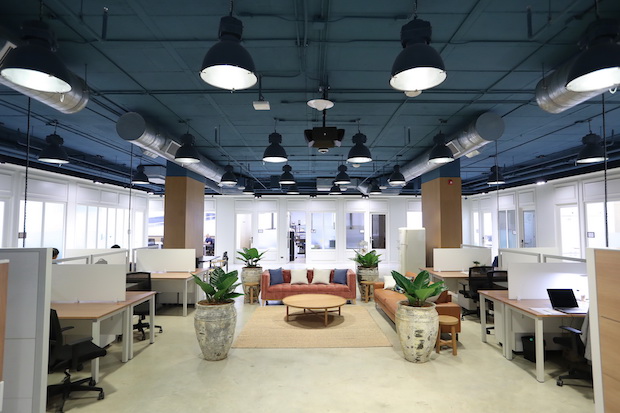
The supply of coworking space provided by international and regional operators in Bangkok has been expanding rapidly. So far this year, five operators have opened new facilities at 10 locations across the city, totalling more than 23,000 square metres of space.
The key driver contributing to this growth is not entrepreneurs and startups as commonly believed, but a focus on corporate users, among whom coworking is fast gaining popularity.
At present, coworking facilities in Bangkok are sized between 1,000 and 3,400 square metres. Most are situated in prime office buildings with easy access to a BTS or MRT station.
Some operators have continued to expand aggressively, having already secured a total of over 30,000 sq m of office space for their new facilities scheduled to open in 2019. The two largest will be operated by JustCo (8,000 sq m at Samyan Mitrtown near the Samyan MRT station) and WeWork (7,600 sq m at the T-ONE Building with a direct link to the Thong Lor BTS station).
Observations by JLL show that some of these operators have more ambitious expansion plans but have trouble finding suitable locations due to the undersupply of prime office space in Bangkok. This explains why most of the upcoming facilities will be located in prime office developments where construction is not yet fully completed.
Corporate users driving demand: What initially began as a platform for freelancers and startups, flexible space providers are now tailoring their offering to accommodate corporate users.
While many corporate users in Bangkok are experimenting with coworking, JLL’s discussions with large occupiers show that more companies have become keen to consider coworking space as an alternative workplace option.
The short contract commitments and individual membership structures allow companies to quickly accommodate changes in headcount and support mobile workforces such as sales or project teams, and remote-working employees, more efficiently and cost-effectively.
However, most of the companies that are interested in coworking are considering the use of this alternative workplace option as a complementary solution rather than replacing their traditional offices. Even so, the growth potential for this new office format is substantial.
Recent research by JLL indicates that flexible work spaces (both coworking space and serviced offices) in Southeast Asia have shown a compound annual growth rate (CAGR) of around 40% in the last three years and now make up 2% of total office stock, from less than 1% in 2015.
The growth of flexible work spaces in Southeast Asia is in line with the rapid growth in Asia Pacific, where flexible-space stock recorded a CAGR of 35.7% from 2014-17, much higher than in the United States (25.7%) and Europe (21.6%) over the same period.
Yupa Sathienpabayut is the head of office leasing at JLL. For more insights, readers can contact her by email Yupa.Sathienpabayut@ap.jll.com or visit www.jll.co.th